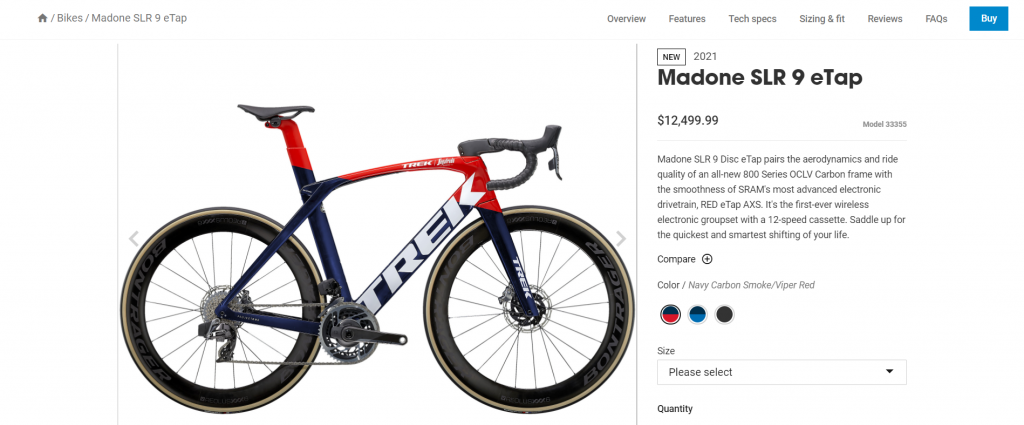At some point in your Saas sales, you are going to find yourself on a stump. Low lead generation and customer conversion. It is a common thing, but don’t get too disappointed because that is the challenge with Saas. Conventional marketing strategies don’t work with them and their sales life cycle is much more complex and erratic. That doesn’t mean that you should just settle with these results. There are ways to work around these hurdles and achieve success. As a matter of fact, 10 of them.
1. Keep Your Trials Short For Increased Saas Sales
The tip speaks for itself. Extensively long trial periods for Saas causes customers to procrastinate. The more they put learning the service on hold, the more likely they are going to forget. As a matter of fact, on average, most people immediately leave after using your product in less than three days.
The key here is to decrease your trial period. Your free service should not be more than 14 days. With this, your potential customers are much more likely going to treat the trial period more seriously. You are urging them to learn it as soon as possible, preventing them from forgetting that it is there in the first place.
2. Faster Saas Sales Through Lower Customer Acquisition Cycle
They always say that be persistent on a potential client. While that may be true, learn to close a deal as soon as possible and know when to cut your losses. Not everybody you come across with can be a potential customer that you can persuade into using your Saas.
When setting your acquisition period, set a maximum of three weeks. Anything beyond that is a guarantee that they have no interest and are not likely to acquire your Saas. Instead, immediately move on to a different potential client.
3. Persuade in the Least Time Possible
Every sale capitalizes on persuasion. Consistent efforts to get a potential customer to look at your product increases the chances of Saas sales. However, keep in mind that you don’t have forever.
Keep your persuasion period short. The less time you allot and the more comprehensive you are with your convincing, the more likely for a client to understand what you have to sell. Most of the time, an extensive sales cycle period can cause cold feet on the side of the customer. So, secure Saas sales as soon as possible.
4. Retention VS Acquisition
Your existing customers are as important as your new ones. So, don’t ever forget about them. Even if they are paying for your services, there is no saying when they will decide to stop. Always keep an eye on them and work on retaining their subscription.
As a Saas company, listen to their demands and suggestions. They are going to voice out new features they want and improvements. Even the slightest cosmetic change can make a huge difference in the satisfaction of a user. A company that learns to value and provide to its customers cannot be beaten no matter how great the offerings are from the competition.
5. Engage! Ask For Feedback and Ask How are Things Going.
Making Saas sales is not just about marketing the features of your product. Don’t settle with just that. Most likely, your potential client knows what you have to offer especially if they are already using the trial period. What they want is somebody who is following up in their progress.
Engage with your potential customers. Ask them for their feedback and how things are going. Don’t forget to check on them if they have questions or aspects they don’t understand. Most of the time, there are things they can’t seem to find or comprehend. Being that helping hand will allow them to use the Saas to its full potential and ultimately see its entire worth.
6. Boost Average Revenue Per User
As a Saas company with more than one product, always offer new services to existing customers. If one already has a subscription for product A, constantly email and offer products B, C, and E.
Already seeing their activity, you already know which new Saas they are likely going to be susceptible to. Marketing is also going to be relatively easier as they have a higher affinity for a company they are already associated with. While this may not count as generating a new customer, you are increasing revenue per user.
7. Improve Your Email Campaign to Increase Saas Sales
Your emails are going to be what’s going to remind your potential customers that you exist. If your emails are not being classified as spam, you are doing it wrong. The more you send, the more you remind and persuade your potential client into Saas sales.
While it may seem intrusive and ineffective to send nonstop emails, it actually isn’t as long it is of value. Use an email that is named under a person instead of a department. When you give the impression to a potential client that they are in contact with a person, the more likely they are going to engage and give the email attention.
8. Saas Sales are Dependent on Activity-Based Emails
While flooding your potential clients is a great start, also make sure that your emails lead to something bigger. Always attach some sort of call-to-action. Link a form where they can start the free-trial, a page where they can learn more, or better yet, where to contact for a more specific quotation.
Your emails are not going to have an impact on your sales if it is just going to be informative. You must urge them to act on your offer by making it readily available to click.
9. Understand Your Customers
A person that has no intention of subscribing to your service is going to look and sound the same as someone who just needs persuasion. There is no way to differentiate the two. However, you can narrow it down simply by understanding them. Find an avenue to be able to connect with your potential customers. Call them and beat around the bush on what kind of customer they are.
When you learn which ones have potential, you are able to concentrate your resources effectively. You are able to provide what a client wants to hear that will ultimately convert their interest into Saas sales.
10. Never Devalue Your Worth
Discounts, lowering your prices, and promos. These are just some of the commonly practiced ways to invite potential customers. While it may seem logical, it is not as effective as you would think. Value is determined by what you provide, not how you price it. Put a proper price on your Saas and sell it that way, never devalue yourself.
Have you ever wondered why luxury brands are still at the top despite being very expensive? Because they know their market and their worth. Remember that the people who use Saas are ones that are already in the market for it. They are willing to pay a price. They are not looking for the cheapest, instead they are searching for the best. Bringing down your price will only devalue your brand and raise questions on the confidence of your services.
In conclusion
Definitely, some of these tips are contradictory to conventional marketing strategies with retail products. That is the reality. Saas are quite different from other industries. The product doesn’t sell itself and the customers are a niche. To say the least, it is not the easiest task to achieve Saas sales. As a matter of fact, companies hand over the responsibility to Saas sales representatives.
There are two ways you can approach Saas sales, either you do it yourself or take the easy road by looking for the best online marketing agencies. Contact us today for a free strategy consultation.












